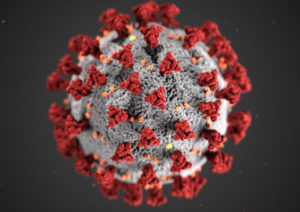Handwashing and Coronavirus Fact Sheet
Published: March 23, 2020

Coronavirus disease 2019 (COVID-19) is a respiratory illness that is caused by a novel coronavirus first identified in an outbreak in Wuhan, China. The disease can spread from person to person contact, both through direct contact with an infected person or through contact with surfaces contaminated with infected viral droplets. Viral droplets are ejected from the mouth or nose when an infected person coughs or sneezes.
For more information about COVID-19, please refer to the World Health Organization’s situation reports and the CDC’s fact sheet regarding the coronavirus disease 2019. This will continue to be updated on an ongoing basis. To keep up with the latest case statistics, dashboards from World Health Organization and the London School of Hygiene and Tropical Medicine are available.
For any infection that is transmitted through person to person contact, handwashing with soap after any contact with a potentially infected person, surface, or object is an effective method to help protect yourself and others from infection. For novel viruses with no vaccine, it is especially important to practice preventative measures, such as handwashing, cleaning and disinfecting surfaces, and social distancing to slow the outbreak. Handwashing with soap washes the infection-causing germs off your hands before they get a chance to infect you, and before you touch surfaces that could help spread these infection-causing germs to other people. This is why top public health officials continue to emphasize handwashing with soap as a frontline defense during outbreaks, such as coronavirus. This article is particularly useful in understanding why handwashing could slow down this epidemic. To prevent the spread of coronavirus, consider the following:
- Wash your hands for at least 20 seconds and at key times. Frequent and regular handwashing with soap for at least 20 seconds is one of the most important prevention measures for COVID-19. Be sure to lather the backs of your hands, between your fingers, and under your nails. The CDC recommends washing hands with soap and water whenever possible, as handwashing reduces the amount of all types of germs on hands. Key times for handwashing include after contact with a sick person; after coughing, sneezing, or blowing your nose; after touching potentially infected surfaces, such as laptops or doorknobs; before eating; and after using the bathroom.
- Use alcohol-based handrub if water and soap are not available. If soap and water are not readily available, an alcohol-based handrub that contains at least 60% alcohol can be used. Alcohol-based handrubs can inactivate many types of microbes, including coronavirus, effectively when used correctly. When using an alcohol-based handrub, apply the product to the palm of one hand (read the label to learn the correct amount) and rub the product all over your hand surface until your hands are dry.
- Regular soap is just as effective as antibacterial soap. Handwashing works to lift dirt and germs from your hands, but evidence suggests that plain soap and water is just as effective as antibacterial soap. Using any type of soap to wash hands is more effective than water alone.
- Consider routes of transmission. Estimates show that most people touch their face every 2-5 minutes. Avoid touching your eyes, nose, and mouth with unwashed hands to avoid infecting yourself with viruses on your hands.
- Minimize contact with potentially contaminated surfaces. Reduce direct contact by minimizing the use of hand greetings, such as handshakes or high-fives, and avoid touching potentially contaminated public surfaces, such as doorknobs and currency.
Response teams are working to reach affected and at-risk communities with key messages on how to properly wash their hands and other preventative measures. GHP partners, such as P&G, UNICEF, and Unilever have taken specific actions to address the growing epidemic. Read more about their efforts in our monthly newsletters here and here.
TAGS: Advocacy Materials Handwashing PromotionAdvocacy & PolicyCoronavirus General PublicAdvocates 2020
